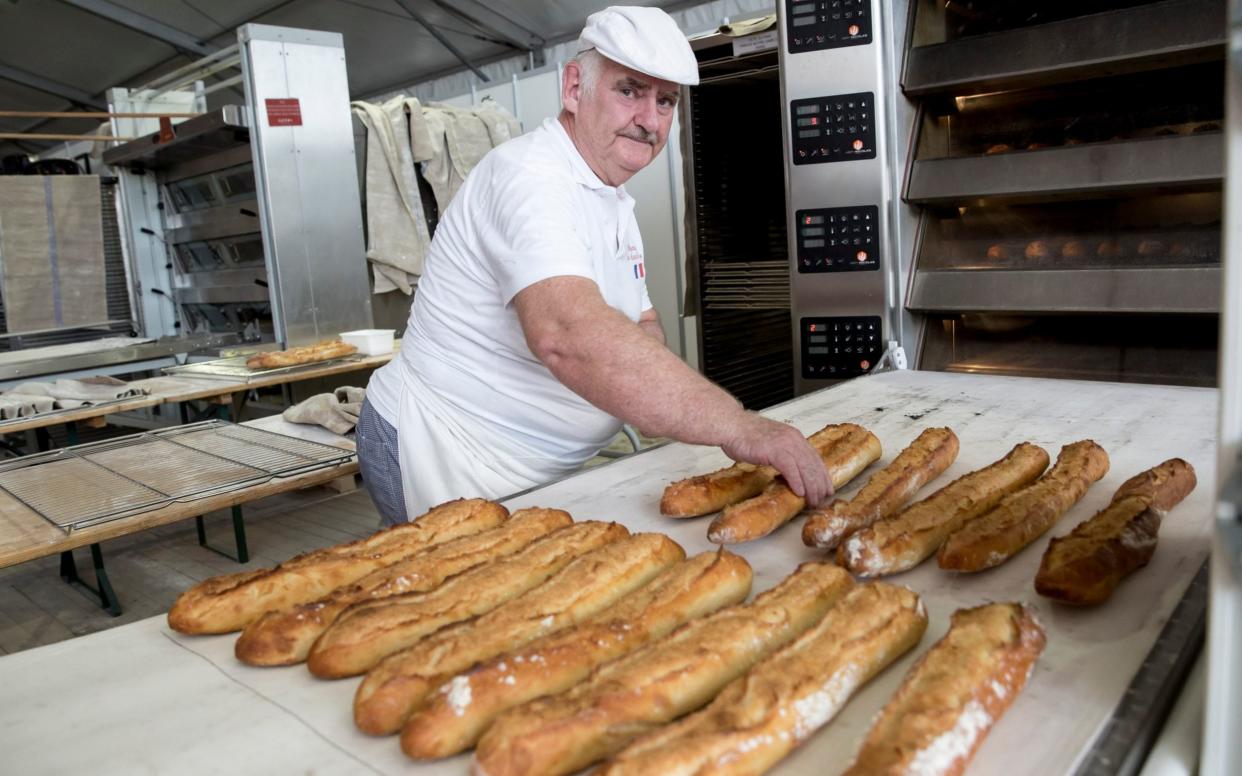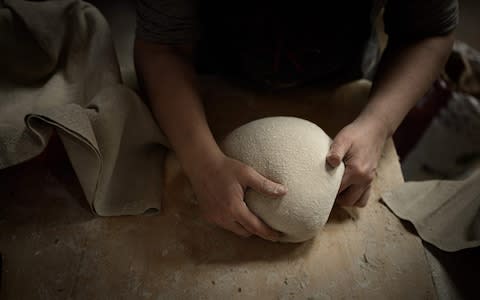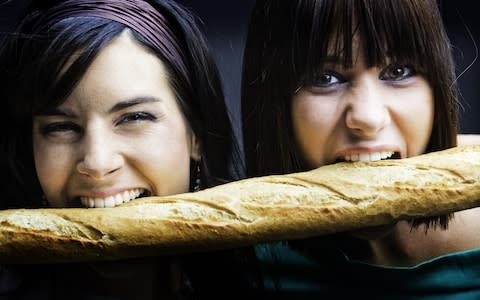France is losing the battle to save the baguette, warns leading bread historian

France is losing the battle to save good bread as a Gallic baking renaissance among a small elite of boulangers has failed to topple the tasteless white baguette, the historian considered the world’s foremost authority on the subject has warned.
Steven L Kaplan, who France has decorated for services rendered to the quintessentially French staple, said that the country was facing a “perfect storm” of factors - from globalisation to complacency - that have blunted the ability of bakers and consumers to care about or even recognise a top quality loaf.
The American historian had long warned that standards were slipping, dating the decline in quality to the 1920s with the transition from slow bread making with a sourdough base to a quick process using yeast. Mechanisation in the 1960s hastened the plunge towards increasingly tasteless bread.
The result has been plummeting daily consumption in France, which has fallen from 600g per person in the late 1880s - two and a half baguettes - to just 80g today - less than a third of a baguette.
There was hope in 1993, when the French government issued a decree to create a special label called “the bread of French tradition”, made exclusively with flour, salt, water and leavening and no additives or freezing. In parallel, millers offered bakers better flour and renowned Parisian baker Lionel Poilâne blended large-scale production with artisanal practices like lengthy fermentation with sourdough and wood oven baking.
“But my hopes have been shattered,” lamented Mr Kaplan, who this week released a new book in French called Pour le Pain (For Bread).

Instead of a widespread rise in top quality bread, the government decree only sparked a “niche renaissance” among an elite of “incredibly imaginative, audacious” bakers, some of whose loaves are “so good they are up there with a Cheval Blanc or Chateau Latour wine”.
“That’s great for people in the bourgeois bohemian districts of Paris but it just hasn’t touched the vast majority; among France’s 29,000 so-called “conventional boulangers”, only 10 per cent at best are interested in such things,” he said.
The rest continue to offer mediocre bread to the French, whose “lack of taste is underlined by one staggering statistic: about three quarters continue to eat the 1960s white baguette - a bleached, deformed, unnatural, tasteless loaf,” he scoffed.
It is not a price issue, he told the Telegraph, as often “we’re talking about a difference of sometimes 20 centimes”.
“Most French are no longer able to discern and then evaluate what constitutes good or bad bread. They take refuge in the citadel of subjectivity by saying: ‘I know it’s good, I’m French. Because I like it, it must be good.’”
“But their capacity to taste has been blunted by a kind of complacency. They’re too blasé and have abandoned their taste sovereignty; instead of being deciders, they let influencers to tell them what is good."

Globalisation is one of the culprits, he said, saying that it had “powerfully sapped terroir, the French attachment to local and national taste” and spread the desire for soft fluffy fare you don’t have to chew.
But more dramatically, he said it was a sign that the French had lost their reign as the “hegemonic source of the arts de table they had enjoyed since the 17th century”.
Meanwhile, France’s national confederation of bakers and patissiers was making things worse by waging war on industrial baguettes and bakery chains without defining and improving the quality of their own bread.
The latest “scary” sign of the decline was France’s absence from the podium at this month’s bakery world cup in Paris, whose winners were China, Japan and Denmark.
“The French have to overcome the sense that ‘we know it all’ and realise that they have something very precious here,” he said.
"I don’t think France will collapse if bread declines but it’s an impoverishing cultural experience to lose touch with something that was so closely linked to French identity and consciousness, that’s why I’m sad and a little bit outraged.”

 Yahoo News
Yahoo News 
